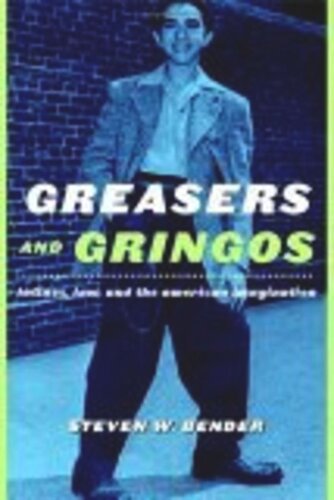

Most ebook files are in PDF format, so you can easily read them using various software such as Foxit Reader or directly on the Google Chrome browser.
Some ebook files are released by publishers in other formats such as .awz, .mobi, .epub, .fb2, etc. You may need to install specific software to read these formats on mobile/PC, such as Calibre.
Please read the tutorial at this link: https://ebookbell.com/faq
We offer FREE conversion to the popular formats you request; however, this may take some time. Therefore, right after payment, please email us, and we will try to provide the service as quickly as possible.
For some exceptional file formats or broken links (if any), please refrain from opening any disputes. Instead, email us first, and we will try to assist within a maximum of 6 hours.
EbookBell Team

4.8
64 reviewsA lawyer criticizes media portrayals of latino/as because it leads to unfair judgements in the court system.This is an important look at stereotyping in American culture.
Although the origin of the term “greaser” is debated, its derogatory meaning never has been. From silent movies like The Greaser’s Revenge (1914) and The Girl and the Greaser (1913) with villainous title characters, to John Steinbeck's portrayals of Latinos as lazy, drunken, and shiftless in his 1935 novel Tortilla Flat, to the image of violent, criminal, drug-using gang members of East LA, negative stereotypes of Latinos/as have been plentiful in American popular culture far before Latinos/as became the most populous minority group in the U.S.
In Greasers and Gringos, Steven W. Bender examines and surveys these stereotypes and their evolution, paying close attention to the role of mass media in their perpetuation. Focusing on the intersection between stereotypes and the law, Bender reveals how these negative images have contributed significantly to the often unfair treatment of Latino/as under American law by the American legal system. He looks at the way demeaning constructions of Latinos/as influence their legal treatment by police, prosecutors, juries, teachers, voters, and vigilantes. He also shows how, by internalizing negative social images, Latinos/as and other subordinated groups view themselves and each other as inferior.
Although fighting against cultural stereotypes can be a daunting task, Bender reminds us that, while hard to break, they do not have to be permanent. Greasers and Gringos begins the charge of debunking existing stereotypes and implores all Americans to re-imagine Latinos/as as legal and social equals.